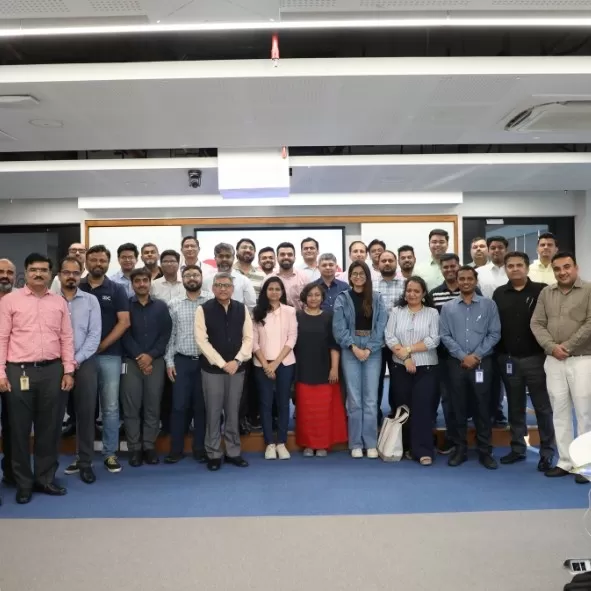Executive Education: Strategy, Innovation, Sustainable Success


In today's ever-changing market, businesses must have well-planned strategies and execute them effectively to succeed. Uncertainty is a big challenge, but having a structured approach to strategy helps leaders create plans that are easier to carry out. To support senior leaders at Reliance Industries – Petrochemical Division, Jio Institute organized a 5-day program on "Strategy Formulation and Execution and Problem-Solving with Design Thinking Approach." The program focused on helping leaders make strategic decisions and provided them with the latest tools and methods to navigate complex business environments. It also highlighted the effectiveness of Design Thinking in problem-solving. The program was attended by 35 participants from various departments of Reliance Petrochemicals.
The program was led by esteemed facilitators: Professor Sougata Roy, Thomas Schmidheiny Chair and Executive Director-TSCFE at ISB, bringing over three decades of rich experience in academia, research, institution building, and corporate governance.
Dr Raveendra Chittoor, Dean of Jio Institute, has held senior roles at leading organisations like IBM, CRISIL (a subsidiary of Standard & Poor's), and Rajan Raheja Group. He's also a seasoned professor of Strategy and International Business.
Dr Gayatri Menon, principal faculty at the National Institute of Design (NID), with more than 23 years of expertise in design education, research, and practice. She currently leads research and development activities at NID and heads the Center for Teaching-Learning
The initial sessions focused on Strategic Thinking, which helped participants understand how to approach problems from different angles. They learned about frameworks and important factors in forming strategies, as well as the role of leadership and organization in making strategic decisions.
After participants grasped the basics of strategy, the program swiftly transitioned into execution. They learned how to create action plans to put strategic insights into practice and align resource allocation with their goals. Additionally, they discovered ways to reduce risks and adapt to uncertain situations.
These sessions were complemented by case studies of Indian and global contexts, that helped participants gain a practical understanding of the concepts. The participants also engaged in hands-on exercises where they prepared strategy maps and balanced scorecards, followed by presenting their solutions.
The second module focused on the five steps of the Design Thinking Approach for problem-solving that was delivered by Dr Gayatri Menon. In this, the participants learned to put people at the centre when creating, innovating, and testing new ideas for products, services, and processes. The aim was to encourage a culture of design thinking that promotes innovation.
The programme provided invaluable insights into crafting and implementing robust strategies aimed at fostering sustainable competitive advantage. Participants assumed the role of key decision-makers, honing their strategic insight to drive organisational success.
